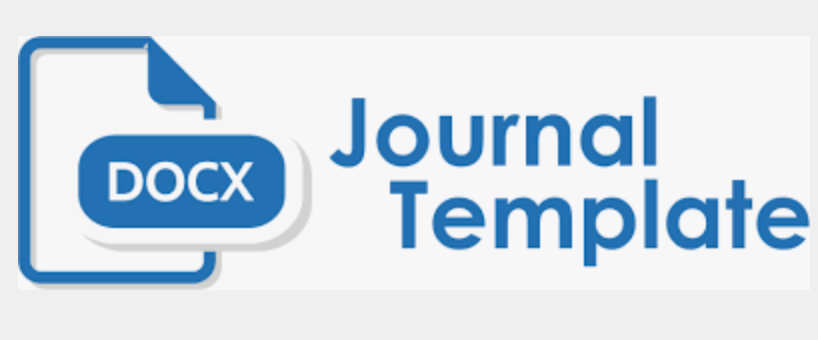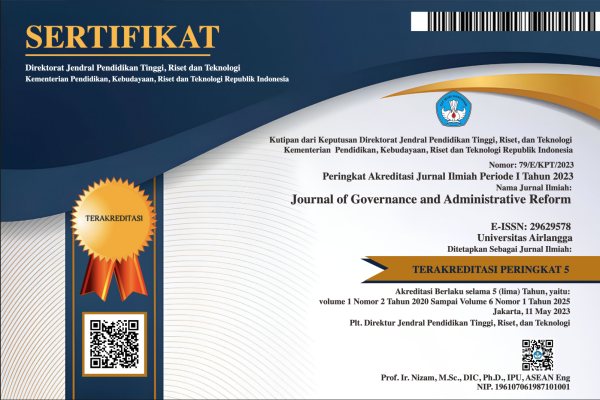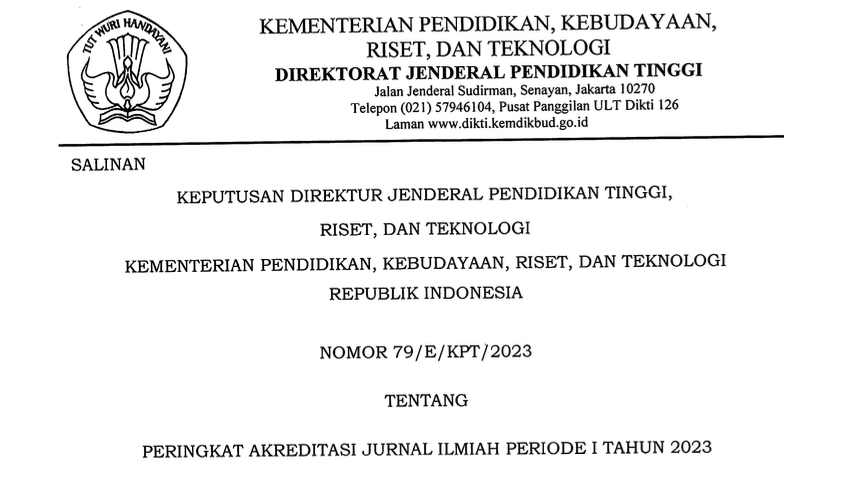Mental Health Program Effects on Public Service Delivery and Good Governance Among Local Institutions of Higher Learning in the Philippines
Downloads
Abstract
Good governance, which is achieved through the delivery of high-quality public services, is closely linked to the quality of the government’s bureaucracy. This study examined the perceptions and experiences of school leaders and personnel regarding the impact of mental health programs on public service delivery and good governance. The research adopted a qualitative descriptive design. Qualitative data were gathered through validated interview and analyzed using a content analysis approach. The study included 21 school leaders and 19 personnel as participants. The findings suggest that mental health programs contribute significantly to enhancing workplace efficiency, strengthening public service, promoting worker well-being, improving decision-making, increasing work productivity, and fostering a positive work culture. These factors collectively support the realization of good governance. The research outcomes provide valuable insights that could inform local policymaking, particularly in improving public service delivery and promoting good governance among local higher education institutions through the implementation of effective mental health programs.
Keywords: Mental health program; public service delivery; good governance.
Abstrak
Pemerintahan yang baik, yang tercapai melalui penyediaan layanan publik berkualitas tinggi, sangat terkait dengan kualitas birokrasi pemerintah. Penelitian ini mengkaji persepsi dan pengalaman pemimpin sekolah serta personel mengenai dampak program kesehatan mental terhadap penyampaian layanan publik dan pemerintahan yang baik. Penelitian ini mengadopsi desain penelitian deskriptif kualitatif. Data kualitatif dikumpulkan melalui wawancara yang telah divalidasi dan dianalisis menggunakan pendekatan analisis isi. Penelitian ini melibatkan 21 pemimpin sekolah dan 19 personel sebagai peserta. Temuan penelitian menunjukkan bahwa program kesehatan mental memberikan kontribusi signifikan dalam meningkatkan efisiensi tempat kerja, memperkuat layanan publik, mempromosikan kesejahteraan pekerja, meningkatkan pengambilan keputusan, meningkatkan produktivitas kerja, dan membina budaya kerja yang positif. Faktor-faktor ini secara kolektif mendukung terwujudnya pemerintahan yang baik. Hasil penelitian ini memberikan wawasan berharga yang dapat digunakan untuk informasi bagi pembuatan kebijakan lokal, khususnya dalam meningkatkan penyampaian layanan publik dan mempromosikan pemerintahan yang baik di antara institusi pendidikan tinggi lokal melalui penerapan program kesehatan mental yang efektif.
Kata kunci: Program kesehatan mental; penyampaian layanan publik; pemerintahan yang baik
Abd Rahim, A., Abdul Manaf, R., Juni, M. H., & Ibrahim, N. (2021). Health System Governance for the Integration of Mental Health Services into Primary Health Care in the Sub-Saharan Africa and South Asia Region: A Systematic Review. Inquiry (United States), 58. https://doi.org/10.1177/00469580211028579
Albright, K., Navarro, E. I., Jarad, I., Boyd, M. R., Powell, B. J., & Lewis, C. C. (2021). Mental Health Therapists. November, 1–11.
Al Zadjali, F. (2017). The Impact of Curriculum Prescription on English Teacher Professional Identity in Oman. [Doctoral Thesis, Leeds Beckett University]. Leeds Beckett Repository. https://eprints.leedsbeckett.ac.uk/id/eprint/4499/
Aquino, P. G., Jalagat, R. C., Ahmed, K. A., & Zakai, S.N. (2020). Employees’ Mental Health and Productivity and its Impact on Contextual and Task Performance in Organizations. Journal of Advanced Research in Dynamical and Control Systems, 12(SP8), 708–719. https://doi.org/10.5373/jardcs/v12sp8/20202573
ASEAN. (2020). ASEAN Guidelines on Public Service Delivery. Retrieved March 15, 2024, from ASEAN-Guidelines-on-Public-Service-Delivery_Final_19Feb2021.pdf
Bhalla, I., Stefanovics, E., & Rosenheck, R. (2020). Social determinants of mental health care systems: Intensive community-based care in the veterans health administration. https://doi.org/10.21203/rs.3.rs-21906/v2
Bjørlykhaug, K. I., Karlsson, B., Hesook, S. K., & Kleppe, L. C. (2022). Social support and recovery from mental health problems: a scoping review. Nordic Social Work Research, 12(5), 666–697. https://doi.org/10.1080/2156857X.2020.1868553
Boherom, A. M. A., Caelian, M. V., & Valencia, J.G. (2022). Implementation, Best Practices, and Challenges in Mental Health Strategies among Local Government Units in the Province of Negros Occidental, Philippines. Philippine Social Science Journal, 5(2), 30–39. https://doi.org/10.52006/main.v5i2.501
Böckler, A., Herrmann, L., Trautwein, F. M., Holmes, T., & Singer, T. (2017). Know Thy Selves: Learning to Understand Oneself Increases the Ability to Understand Others. Journal of Cognitive Enhancement, 1(2), 197–209. https://doi.org/10.1007/s41465-017-0023-6
Diarra, G., & Plane, P. (2011). Assessing the World Bank ’ s influence on the good governance paradigm To cite this version : HAL Id : halshs-00617576 Assessing the World Bank ’ s influence
Doyle, L., McCabe, C., Keogh, B., Brady, A., & McCann, M. (2020). An overview of the qualitative descriptive design within nursing research. Journal of Research in Nursing, 25(5), 443–455. https://doi.org/10.1177/1744987119880234
Eisman, A. B., Kim, B., Salloum, R. G., Shuman, C. J., & Glasgow, R. E. (2022). Advancing rapid adaptation for urgent public health crises: Using implementation science to facilitate effective and efficient responses. Frontiers in Public Health, 10. https://doi.org/10.3389/fpubh.2022.959567
Eccles, H., Nannarone, M., Lashewicz, B., Attridge, M., Marchand, A., Aiken, A., Ho, K., & Wang, J. (2020). Perceived effectiveness and motivations for the use of web-based mental health programs: Qualitative study. Journal of Medical Internet Research, 22(7). https://doi.org/10.2196/16961
Gopinath S R & Krishnamurthy A R (2018). The Impact of Decision-Making and Problem-Solving Skills on Mental Health Status among Industrial Workers through Life-Skills Education. International Journal of Indian Psychology, Vol. 6, (2), DIP: 18.01.025/20180602, DOI: 10.25215/0602.025
Grimmelikhuijsen, S., Jilke, S., Olsen, A. L., & Tummers, L. (2017). Behavioral Public Administration: Combining Insights from Public Administration and Psychology. Public Administration Review, 77(1), 45–56. https://doi.org/10.1111/puar.12609
Kadar, K., Andriani, A., & Tandi, D. (2019). Exploring mental health nursing practice in Indonesian rural areas. Journal of Public Mental Health, 19(2), 119-126. https://doi.org/10.1108/jpmh-11-2018-0078
Kohrt, B., Asher, L., Bhardwaj, A., Fazel, M., Jordans, M., Mutamba, B., … & Patel, V. (2018). The role of communities in mental health care in low- and middle-income countries: A meta-review of components and competencies. International Journal of Environmental Research and Public Health, 15(6), 1279. https://doi.org/10.3390/ijerph15061279
Lawn, S., Kaine, C., Stevenson, J., & McMahon, J. (2021). Australian mental health consumers’ experiences of service engagement and disengagement: A descriptive study. International Journal of Environmental Research and Public Health, 18(19). https://doi.org/10.3390/ijerph181910464
Lord, S. E., Seavey, K. M., Oren, S. D., Budney, A. J., & Marsch, L. A. (2019). Digital presence of a research center as a research dissemination platform: Reach and resources. JMIR Mental Health, 6(4). https://doi.org/10.2196/11686
Mahmoodi, H., Bolbanabad, A. M., Shaghaghi, A., Zokaie, M., Gheshlagh, R. G., & Afkhamzadeh, A. (2023). Barriers to implementing health programs based on community participation: the Q method derived perspectives of healthcare professional. BMC Public Health, 23(1), 1–9. https://doi.org/10.1186/s12889-023-16961-5
Mcneill, C., Stephens, U., & Walker, T. (2022). Urban Health: A Practical Application for Clinical Based Learning. https://digitalcommons.wayne.edu/oa_textbooks/2
Onyenwe, C., Onwumere, C., & Odilibe, I. (2024). Review and integration of mental health and substance use services in public health initiatives. International Medical Science Research Journal, 4(3), 361-372. https://doi.org/10.51594/imsrj.v4i3.933
Purtle, J., Nelson, K. L., Bruns, E. J., & Hoagwood, K. E. (2020). Dissemination Strategies to Accelerate the Policy Impact of Children’s Mental Health Services Research. Psychiatric Services, 71(11), 1170–1178. https://doi.org/10.1176/APPI.PS.201900527
Rahim, A. (2019). Governance and Good Governance-A Conceptual Perspective. Journal of Public Administration and Governance, 9(3), 133. https://doi.org/10.5296/jpag.v9i3.15417
Richter, A., Sjunnestrand, M., Strandh, M. R., & Hasson, H. (2022). Implementing School-Based Mental Health Services: A Scoping Review of the Literature Summarizing the Factors That Affect Implementation. International Journal of Environmental Research and Public Health, 19(6). https://doi.org/10.3390/ijerph19063489
Saliba, Y., & Barden, S. (2017). Counselors and Workplace Wellness Programs: A Conceptual Model. The Professional Counselor, 7(2), 104–113. https://doi.org/10.15241/ys.7.2.104
Sciepura, B., & Linos, E. (2022). When Perceptions of Public Service Harms the Public Servant: Predictors of Burnout and Compassion Fatigue in Government. Review of Public Personnel Administration. https://doi.org/10.1177/0734371X221081508
Snow, M., Berger, M., Jaouich, A., Hood, M., & Salmon, A. (2023). Integration of the program evaluation standards into an evaluation toolkit for a transformative model of care for mental health service delivery. Journal of Multidisciplinary Evaluation, 19(43), 66-79. https://doi.org/10.56645/jmde.v19i43.837
Spanemberg, L., Salum, G., & Bado, P. (2020). How can schools be integrated in promoting well-being, preventing mental health problems and averting substance-use disorders in urban populations? Current Opinion in Psychiatry, 33(3), 255-263. https://doi.org/10.1097/yco.0000000000000591
Steigen, A. M., Eriksson, B. G., Kogstad, R. E., & Bergh, D. (2022). The Meaning of Social Support in Nature-Based Services for Young Adults with Mental Health Problems. International Journal of Environmental Research and Public Health, 19(3). https://doi.org/10.3390/ijerph19031638
Stomski, N. J., & Morrison, P. (2017). Participation in mental healthcare: A qualitative meta-synthesis. International Journal of Mental Health Systems, 11(1), 1–11. https://doi.org/10.1186/s13033-017-0174-y
Sullivan, E., Geierstanger, S., & Soleimanpour, S. (2022). Mental health service provision at school-based health centers during the COVID-19 pandemic: Qualitative findings from a national listening session. Journal of Pediatric Health Care, 36(4), 358-367. https://doi.org/10.1016/j.pedhc.2021.11.003
UNESCO. (2012). UN System Task Team on the Post-2015 UN development agenda: governance and development. High-Level Plenary Meeting of the General Assembly on the Millennium Development Goals, May, 12. http://www.un.org/millenniumgoals/pdf/Think Pieces/7_governance.pdf
Upadhaya, N., Jordans, M. J. D., Pokhrel, R., Gurung, D., Adhikari, R. P., Petersen, I., & Komproe, I. H. (2017). Current situations and future directions for mental health system governance in Nepal: Findings from a qualitative study. International Journal of Mental Health Systems, 11(1), 1–12. https://doi.org/10.1186/s13033-017-0145-3
Wu, A., Roemer, E. C., Kent, K. B., Ballard, D. W., & Goetzel, R. Z. (2021). Organizational best practices supporting mental health in the workplace. Journal of Occupational and Environmental Medicine, 63(12), E925–E931. https://doi.org/10.1097/JOM.0000000000002407
Copyright (c) 2025 Author

This work is licensed under a Creative Commons Attribution-ShareAlike 4.0 International License.
Jurnal Governance and Administrative Reform by Unair is licensed under a Creative Commons Attribution-ShareAlike 4.0 International License.
1. The journal allows the author to hold the copyright of the article without restrictions.
2. The journal allows the author(s) to retain publishing rights without restrictions
3. The legal formal aspect of journal publication accessibility refers to Creative Commons Attribution Share-Alike (CC BY-SA).






















